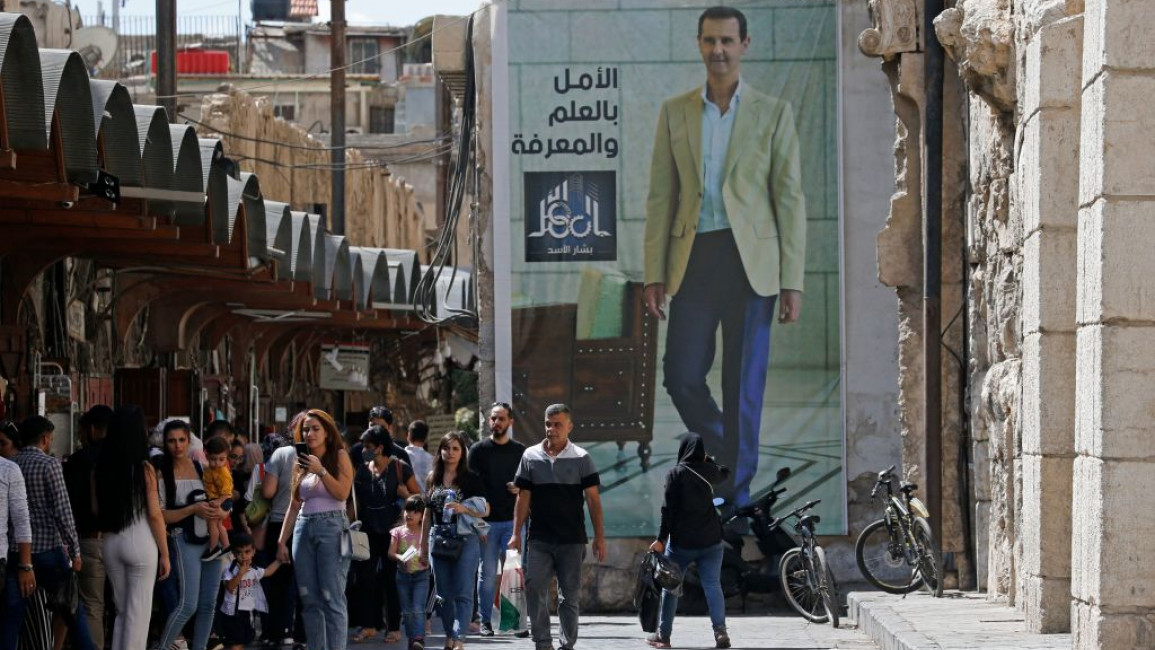Syria re-added to INTERPOL, risking potential for abuse of dissidents
Syria was re-added to INTERPOL’s communication network this week in a move that legal activists say could open the door for harassment and abuse of opposition figures and refugees.
The press office of INTERPOL told The New Arab on Friday that “Damascus has been granted access to the organization’s secure global police communications network.”
This allows the Syrian regime access to INTERPOL databases and to communicate with other INTERPOL members through the organization’s channels.
It also gives Damascus powerful new tools which it could use to pursue political dissidents across the globe, should it choose to do so.
“INTERPOL is bigger than the United Nations, so imagine the abilities that it gives to a non-democratic country in terms of persecuting its opponents,” Yuriy Nemets, a Washington D.C.-based attorney who specializes in representing victims of INTERPOL abuse, told The New Arab.
As a member of INTERPOL, Damascus can publish international arrest warrants, called “red notices” across the 194-member strong international policing organization.
Red notices are a request for member countries to locate and arrest individuals. In some cases, these arrests can lead to extradition, depending on the arresting countries’ approach to INTERPOL and relationship with the country which issues the Red List.
Red notices must be submitted through the General Secretariat of INTERPOL and go through a screening process designed to prevent politically-motivated warrants from being Issued. Legal experts, however, describe the process as deeply flawed and claim that red notices are rarely rejected.
Countries can also issue “diffusions,” which are arrest warrants that are sent to specific regions or countries directly, without passing through any screening process beforehand.
Damascus has a history of pursuing political opponents, both at home and abroad. Dissidents at home are often charged with terrorism for protesting the regime, while those outside the country have been actively pursued by individuals affiliated with regime intelligence services.
Opposition figures and refugees have faced arbritary arrest, torture and dissapearance upon their return to government-held areas of Syria.
Perhaps the most notorious of these cases is Mazen Hamada, a prominent opposition activist who fled Syria after being arrested and tortured in regime prisons. He returned to Syria in 2019 after being promised amnesty by the regime, and has not been heard from since.
Inclusion in INTERPOL’s database could also affect refugees and Syrians currently seeking asylum. About 6.8 million Syrians are currently refugees and asylum seekers.
“Red notices have had the impact of excluding an individual from refugee status in some countries,” Bruno Min, the UK and international legal director for Fair Trial, told The New Arab.
“In these countries, the existence of a red notice is an evidential basis for someone being a threat to the country, and on that basis, they decide to exclude them from refugee status,” Min said.
In 2015, INTERPOL expressly announced that it will not help countries detain refugees and asylum seekers. However, if a red notice is listed for a refugee on the organization’s database, this can still lead to their arrest and harm their asylum applications.
“Even in the United States, people who ask for political asylum still get detained because they are on the INTERPOL wanted list, put there by countries which are widely considered non-democratic,” Nemets said.
He added that one of his clients, who came from an “autocratic Eastern European country,” spent two years in detention in the US, despite the fact that the country that issued their warrant was the same one they were claiming political asylum from.
In July, a Uighyr activist was arrested while transiting through Casablanca airport due to a red notice issued by China, where more than a million Uighyrs have been held in concentration camps. He now faces the possibility of being extradited back to China, despite having lived in Turkey since 2012.
The “terrorist” designation which Damascus often pins to its opponents is particularly troublesome to refugees. Besides throwing up red flags in the often arduous security screening processes of asylum cases, it can also affect the status of refugees already granted asylum.
To those states which do not want to take in anymore refugees, a red notice could be a convenient pretext for denying asylum cases.
The UN Refugee Convention, which provides the general global framework for refugee protection, has an exception under which countries are not obligated to provide protection to asylum seekers. Namely, if asylum seekers have committed a “crime against humanity” or those who have committed acts contrary to the acts of the UN, they could be excluded from refugee protection.
“This will be a big test for INTERPOL, depending on how Syria decides to use its membership. To the extent that they are able to prevent abusive practices being disseminated by Syria, it will be an indication of the weaknesses in their systems,” Min said.



